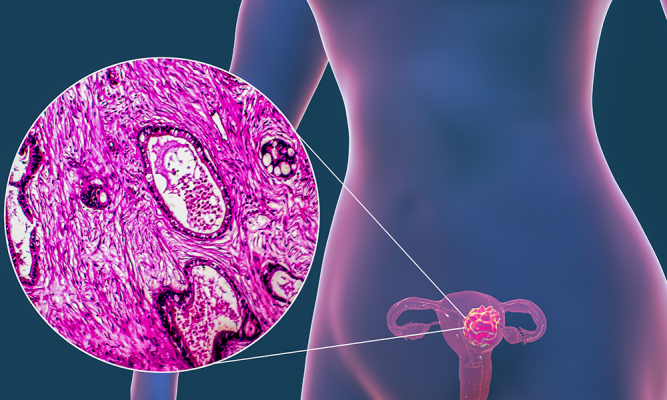Uterine cancer, also known as endometrial cancer, originates in the lining of the uterus. It is the most common type of cancer affecting the female reproductive system and often presents with early symptoms, allowing for timely diagnosis and treatment.
Uterine cancer originates in the uterus, commonly in the endometrial lining. Symptoms may include unusual bleeding, pelvic discomfort, and weight loss. Dr. Arvind Kumar is one of the best uterine cancer surgeon in Delhi, providing specialized treatment and personalized care for patients.

Uterine cancer primarily comes in two forms:
If you experience abnormal vaginal bleeding, particularly after menopause, or any other unusual symptoms, it is crucial to consult a healthcare provider for further evaluation.
The exact cause of uterine cancer is not fully understood, but it is believed to develop when cells in the uterus acquire mutations in their DNA. These mutations cause the cells to grow uncontrollably, forming a tumor.
Diagnosing uterine cancer typically involves:
Uterine cancer stages range from 1 to 4:
Stage 1: The cancer is confined to the uterus.
Stage 2: The cancer has spread to the cervix.
Stage 3: The cancer has spread beyond the uterus to nearby tissues.
Stage 4: The cancer has spread to distant organs, such as the bladder, intestines, or lungs.
Surgery is the most common treatment for uterine cancer, which may involve:
Radiation therapy uses high-energy rays to destroy cancer cells and may be used before surgery to shrink the tumor or after surgery to eliminate any remaining cancer cells.
Hormone therapy may be used to slow the growth of uterine cancer cells, especially in women who are not candidates for surgery or radiation.
Chemotherapy uses drugs to kill cancer cells and is often used for advanced uterine cancer or when it has spread to other parts of the body.
Palliative care is an approach that focuses on relieving symptoms and improving quality of life for women with advanced uterine cancer, complementing other treatments.
The prognosis for uterine cancer is generally favorable if detected early. The success of treatment depends on the cancer's stage at diagnosis, and continuous advancements in medical care are improving survival rates.